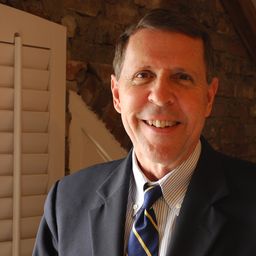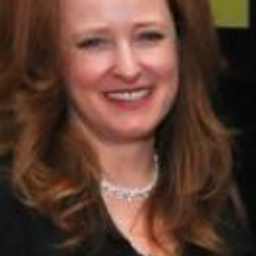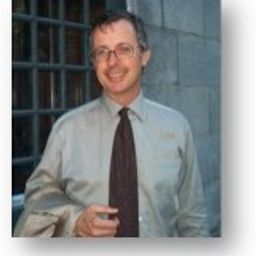
Prof. Dominique Poulot
Dominique Poulot, membre honoraire de l’Institut Universitaire de France, est professeur à l’Université de Paris 1 Panthéon-Sorbonne et président du Comité des Travaux Historiques et Scientifiques (Ecole des Chartes). Ses recherches portent sur l’institution du musée et plus largement sur la patrimonialisation aux époques moderne et contemporaine.
Il a été marqué par l’enseignement de Pierre Nora à l’EHESS, sous la direction duquel il a soutenu son DEA en 1979. Sa thèse de doctorat, dix ans plus tard, évoque les origines intellectuelles du patrimoine et la formation des musées en France. Jean Monnet Fellow à l’Institut Universitaire Européen (Florence) en 1990-1991, il élargit son horizon avant de devenir professeur d’histoire moderne aux Universités de Grenoble II puis de Tours, puis de rejoindre l’Institut d’art et d’archéologie de Paris 1 en 2000. Il a été Getty Scholar au Getty Research Institute, Ailsa Mellon Bruce Visiting Senior Fellow au CASVA, Washington, et professeur invité dans de nombreuses universités canadiennes et nord-américaines.
Il a notamment publié Surveiller et s’instruire. La Révolution française et l’intelligence de l’héritage historique, Oxford, Voltaire Foundation, 1996, Musée, nation, patrimoine, 1789-1815, Paris, Gallimard, « Bibliothèque des Histoires », 1997, Musées en Europe: une mutation inachevée, (avec Catherine Ballé), Paris, La Documentation française, 2004, Une histoire des musées de France, Paris, La Découverte, «L’espace de l’histoire», 2005, Musée et muséologie, Paris, La Découverte, « Repères », 2005, Une histoire du patrimoine en Occident, Du monument aux valeurs, Paris, PUF, « Le noeud gordien », 2006, Patrimoine et Musée : l’institution de la culture, Paris, Hachette, « Carré Histoire », 2014.
Il a dirigé des travaux collectifs, notamment L’enseignement de l’art, XVIIIème-XXIème siècles, Rennes, Presses Universitaires de Rennes, « Art et Société », 2009, Letters to Miranda and Canova on the Abduction of Antiquities from Rome and Athens, Los Angeles, Getty, « Texts and Documents », 2011, Goûts privés et enjeux publics dans la patrimonialisation, XVIIIe-XXIe siècle, Paris, Publications de la Sorbonne, 2012.
Sessions in which Prof. Dominique Poulot participates
Saturday 4 June, 2016
Tuesday 7 June, 2016
The second half of the 20th century saw the affirmation of national and international heritage administrations run by teams of experts that mutually validated each other’s knowledge and findings. The emergence of new forms of heritage, new collections and international networks related to museums, or other heritage structures, has led to the development of numerous new or reformulated specialities. In the last two decades a new ideal of heritage has gained ground, one based on communities ...
Sessions in which Prof. Dominique Poulot attends
Friday 3 June, 2016
What does heritage change for tourism? | Le patrimoine, ça change quoi au tourisme? Ce débat veut interroger les relations entre le tourisme et le patrimoine et dépasser ainsi les idées reçues sur l'antagonisme entre le tourisme "corrupteur" et le patrimoine qui en serait la victime. Il s'agit donc de repenser le tourisme comme un réel acteur du patrimoine, de sa valorisation et de son appropriation, y compris par les populations locales. Cela présuppose, au p...
This forum will explore the current directions of critical heritage studies and what makes ACHS distinctive. Panel members will discuss what the term critical means to them, and what directions they would like to see develop in the future. To help develop an open dialogue, the session will also give considerable time to contributions from the audience.
Welcome addresses and cocktail, followed by the Concordia Signature Event "The Garden of the Grey Nuns". As the opening ceremony and cocktail take place in the former Grey Nuns' Motherhouse, recycled into campus residence and reading rooms by Concordia University, delegates will also have the possibility to discover the video Three Grey Nuns (3 minutes, by Ron Rudin and Phil Lichti. Three Grey Nuns recount their memories of communal life in the Grey Nun’s Motherhouse. Built...
Working with archival documents and the current-day morphology of the Grey Nuns' site, Dr Cynthia Hammond, Dr Shauna Janssen, in collaboration with Dr Jill Didur, will curate a series of installations and performances that speak directly to the rich heritage of a specific urban landscape: the gardens of the Grey Nuns' Motherhouse, now part of the Concordia University downtown campus. Visitors will have the opportunity to explore the lost working gardens of the Grey Nuns. As with other such...
Saturday 4 June, 2016
Le patrimoine, ça change quoi ? Ou plutôt, qu'est-ce que c'est ? Et pour qui ? Ces questions sont à l'origine de cette exposition conçue par les étudiants à la maîtrise en muséologie UQAM-UdeM. L'opinion de la communauté uqamienne y est confrontée à des citations de chercheurs, avec comme résultat une mise en perspective originale du discours sur le patrimoine. __ How is heritage important? Or rather, what is heritage? And for whom? Those questions are at the core of this e...
What if we changed our views on heritage? And if heritage has already changed? While, on the global scene, states maintain their leading role in the mobilization of social and territorial histories, on the local scale, regions, neighbourhoods and parishes have changed. Citizens and communities too: they latch on to heritage to express an unprecedented range of belongings that no law seems to be able to take measures to contain, often to the discontent of...
Since the beginning of the 19th century religious buildings and artefacts of the West have been involved in a continuous process of musealization. In the time-period subsequent to the Second World War, the general forces of secularisation increasingly turned religious buildings, most of them churches, into heritage and substantial parts of Christian practices into history. On a global scale (Western), conservation and heritage practices have been applied on tangible and intangible expressions...
This festive event will offer delegates a taste of one of the iconic dishes of Montreal, the smoked meat sandwich, imported by Jewish immigration from Eastern Europe in the early 20th century. In particular, the tasting will allow a discovery of the products of the renowned international institution Schwartz's, the Hebrew Delicatessen for which Montrealers and tourists alike are willing to wait in long line-ups. During the tasting, “Chez Schwartz,” a documentary produced by Garry B...
Most of what we experience as heritage emerges into conscious recognition through a complex mixture of political and ideological filters, including nationalism. In these processes, through a variety of devices (museums, scholarly research, consumer reproduction, etc.), dualistic classifications articulate a powerful hierarchy of value and significance. In particular, the tangible-intangible pair, given legitimacy by such international bodies as UNESCO, reproduces a selective ordering of cul...
Sunday 5 June, 2016
With his expression "ceci tuera cela," Hugo established almost two centuries ago a strong link between words and stones as transmission vehicles of human memory. We heritage experts would be inclined to consider stones as more reliable than words, what semiology seems to confirm: stones are clues, and clues are, according to Roland Barthes, tangible proofs of “what has been.” But the inspector Columbo has often shown how we can play with these clues, and Umberto Eco would easily forgive us th...
"What does heritage change?" is a multifaceted question to which the answer(s) are in primary respects related to real-life negotiations among different groups of citizens, cultures, races, ethnic groups, sexual identities, and social classes about received, official and/or widely accepted or accomodated intangible attributes, cultural traditions, historic monuments, buildings, and other transmitted or revived historical legacies. Heritage designated by and for whom, for what motivations, an...
Directed by Tom Fassaert and presented by Marc Jacobs. ___ Doel, a Belgian village near the Dutch border, is disappearing quickly and deliberately. Not because of the four old nuclear reactors on its territory, but because the Flemish government decided that the village might block projects for new docks for the Antwerp harbour, plans developed since the 1960s. In the 21st century this process of officially encouraged depopulation is coming to an end: 2500 inhabitants i...
Monday 6 June, 2016
Questions about the repatriation of cultural property, issues of access and exclusion in the World Heritage system, intangible heritage practices in conflict with human rights norms, or the ways in which the international human rights regime is interpreted as a form of cultural heritage itself: rights are now considered relevant in a broad variety of heritage situations. This is reflected in the incorporation of references to human rights in a series of key international heritage-relate...
Tuesday 7 June, 2016
The second half of the 20th century saw the affirmation of national and international heritage administrations run by teams of experts that mutually validated each other’s knowledge and findings. The emergence of new forms of heritage, new collections and international networks related to museums, or other heritage structures, has led to the development of numerous new or reformulated specialities. In the last two decades a new ideal of heritage has gained ground, one based on communities ...
Dans la tradition occidentale, le patrimoine culturel trouverait ses fondements «dans le concept chrétien de l’héritage sacré de la foi» (Babelon et Chastel 1994), dont la conservation des objets religieux sous l’Antiquité et le culte des reliques seraient les prémices. Posant alors le principe du «transfert de sacralité», on emprunta le vocabulaire et les techniques du premier pour construire le second, qualifiant ainsi le fait patrimonial comme le culte laïc des productions humaines. Le sac...
The closing dinner of the conference, called “Pawâ” according to a French-Canadian tradition borrowed from the Native American lexicon, will be an opportunity to discover, in the heart of the Old Port of Montreal, an original culinary creation by the caterer Agnus Dei, from the renowned Maison Cartier-Besson in Montreal, leader in its field for its boundless creativity and event expertise. The dinner, in the form of stations, will offer delegates an exploration of Quebecois culinary heritage,...












